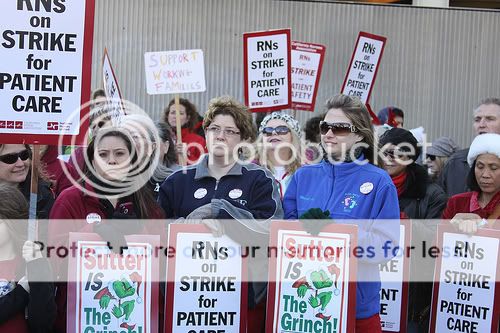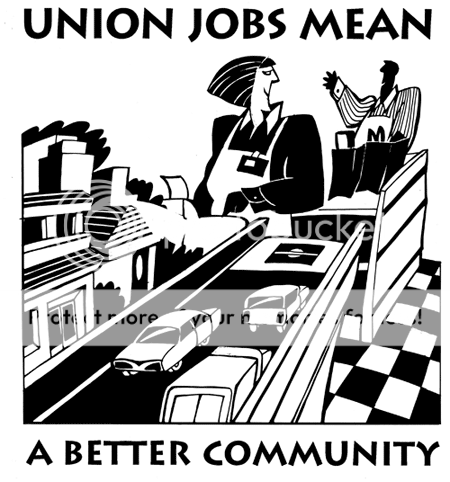The War Against Economic Recovery
 Phillip Wilson is a foot soldier in the war against our economy recovery. It’s not a one man war, Wilson has help from politicians like Wisconsin’s Scott Walker(Republican) and Chicago’s Rahm Emanuel(Democrat), from powerful corporate leaders like the Koch Brothers and the Pritzker family, plus organizations like the Chamber of Commerce and the National Association of Manufacturers.
Phillip Wilson is a foot soldier in the war against our economy recovery. It’s not a one man war, Wilson has help from politicians like Wisconsin’s Scott Walker(Republican) and Chicago’s Rahm Emanuel(Democrat), from powerful corporate leaders like the Koch Brothers and the Pritzker family, plus organizations like the Chamber of Commerce and the National Association of Manufacturers.
His weapons are not guns or remotely piloted drones, but his laptop, his books and his videos. He is also a seasoned warrior, one with many years of experience. He’s even testified in Congress. Phillip Wilson (photo on right) runs the Labor Relations Institute. Its innocuous sounding name conceals its actual purpose. It is a “union avoidance consulting firm”. Labor activists use the term “unionbuster”, usually with several NSFW epithets attached to it.
Breaking unions or smashing organizing campaigns pushes down wages and reduces pensions, making it more difficult for people to buy products and services. This lack of spending holds back an already weak economic recovery and threatens to unleash what financial writers like to call a double dip recession. Even certified OnePercenter Fed Chair Ben Bernanke says this:
“The fundamentals that support spending continue to be weak: real household income and wealth were flat in 2011, and access to credit remained restricted for many potential borrowers. The job market remains far from normal.” from the Financial Times 2-29-12
Strong healthy unions raise wages and preserve pensions so that people buy the goods and services crucial to a sustained economy recovery.
Phillip Wilson’s firm and others like it provide advice and propaganda for employers to defeat union organizing drives, weaken existing union contracts and decertify unions when possible. He freely admits that his most powerful weapon is the “captive audience” meeting. He advises his clients to hold multiple mandatory meetings where employees must endure Wilson’s videos and his anti-union pitch. It’s not just the content that makes an impression.These forced attendance gatherings are a direct expression of the dictatorships that exist in most American workplaces.
Even the jargon employers use, like “my employees” or “our company family”, betray the language of servitude. Words like “my” and “our” are possessive pronouns, as if employers “own” workers. It is the language of totalitarian, not democratic values. And what about the term “captive audience”? Are workers prisoners of war? Caged people? Caged animals?
Because our professed values of freedom and democracy barely exist within the American workplace, Wilson’s 1984ish psychological warfare can be very effective. But don’t give Wilson too much credit. In the atmosphere of fear brought on by high unemployment, employers can threaten mass firings, move jobs elsewhere or stay put and bring in cheaper more desperate temps or contract employees. Employers can also illegally fire pro-union workers with relative impunity because our weak labor laws are only barely enforced.
 Take the case of Tashawna Green for example (photo on left with daughter). She was fired from a Valley Stream, NY Target store for leading a union organizing drive to affiliate with United Food and Commercial Workers(UFCW) Local 1500. Green, a Jamaican born single mom was making $8 an hour with a work week under 20 hours. Green said that many of her co-workers were on food stamps.
Take the case of Tashawna Green for example (photo on left with daughter). She was fired from a Valley Stream, NY Target store for leading a union organizing drive to affiliate with United Food and Commercial Workers(UFCW) Local 1500. Green, a Jamaican born single mom was making $8 an hour with a work week under 20 hours. Green said that many of her co-workers were on food stamps.
Workers at Target reported that when they would ask for more hours, Target would ask them if they had friends who needed jobs. Longtime Target workers also reported that supervisors have increased pressure to work faster with no corresponding raise in pay, resulting in unreasonable stress and exhaustion. Workplace stress is directly linked to many medical ailments, some of them fatal.
After the union drive began in 2011 the company resorted to intimidation tactics that the National Labor Relations Board(NLRB) later charged are illegal, including threatening to close the store if the workers voted for the union. According to Alvin Blyer of the NLRB:
“One rule prohibits off-duty employees from returning to non-work areas, such as store parking lots; another bans employees from wearing union paraphernalia; a third restricts employees from talking about working conditions on breaks or before or after work; and a final one prohibits workers from passing out literature to colleagues.” from Crain’s New York
When a powerful retail corporation dictates terms like this, you have to ask, what kind of freedom and democracy do we really have? What kind of “free market” is this anyway?
In this atmosphere of fear and intimidation workers finally decided to vote against unionization. Phillip Wilson and his colleagues in the union busting business would hail this as a great victory. A great victory over struggling working class people, many of them single moms with kids? A great victory over our struggling economic recovery because low pay means lower economy activity? Just how many more “great victories” like that can this nation afford?
Genuine economy recovery demands an extension of democracy into the workplace. Unions themselves need to embrace a more democratic culture if they are to reverse their downward spiral in membership. This is not an easy transition as most unions are organized in a top-down manner and many union leaders do not welcome rank and file activism they don’t control.
But change is happening. The Wisconsin Uprising and Occupy Wall Street have awoken a spirit of labor movement activism that is sweeping through America’s unions. But it goes beyond that. Although unions are the beating heart of the labor movement, the movement also includes immigrant rights organizations, feminist organizations, anti-racist organizations, human rights organizations, community organizations, global solidarity organizations, peace organizations, student organizations, eviro-organizations, religious organizations, business organizations, and a lot of individuals who simply want to do what is right.
This New American Labor Movement is still in its infancy but it has forged alliances the likes of which have not been seen in decades. An old union principle guides this new movement. Solidarity. Solidarity is not uniformity. Solidarity means finding common ground despite differences. Solidarity requires a deep commitment to stick together for social justice—come hell or high water.
In addition to raising working class incomes, a sustainable economic recovery will require massive changes in our tax policy and massive public investment in our aging physical infrastructure. It will require improving our public schools and investing in new cleaner, greener technology. It will mean dismantling our global military empire and moving into a peacetime economy. All of this will require far-reaching progressive legislation.
Despite the corporate attacks on unions, there are still nearly 15 million union members in the USA. They represent the true diversity of our nation in a way that the OnePercenters cannot. They can still bring considerable organized political power to lobby for progressive legislation and elect progressive candidates.
Unions also have considerable resources for organizing and supporting public demonstrations. This includes civil disobedience, a tactic that unions are slowly beginning to embrace again, largely because of the Occupy movement.
Unions also have the power to strike. We live in a brutally competitive market economy and The OnePercenters are largely immune from appeals to the heart. If you want to teach them some manners, they have to be hit in their wallets. Hard. Strikes can do that, but only if they have a chance of success. This requires that unions not only grow in membership but in active membership. The days when union members could treat their unions as a kind of insurance policy requiring nothing more than a regular dues payment are over.

The AFL-CIO has a new campaign called “Work Connects Us All”. Through a broad labor movement activists can meet people from the diversity of working class America to discuss and plan a better future for us all. The labor movement is also global. The labor movement of one country cannot work in isolation, we have to form solidarity connections and steer the global economy into a more decent and humane future. It’s not just the USA that needs a sustainable economy, it’s the entire planet.
The stakes are high. Income inequality in the USA is the worst since the 1920’s. The income inequality of the 1920‘s grew partly because of the savage union busting campaign that followed World War I. Phillip Wilson and his union-hating pals might regard this as a great victory. But what did this great union busting victory help bring on? How about the 1929 stock market crash, the collapse of the world economy, & the political chaos that fed nazism, fascism, militarism, stalinism. The grand finale was World War II.
My parents lived through the horrors of depression and global war. From them I learned an important lesson. Never again.
Sources Consulted
The Labor Relations Institute Inc.
Union Avoidance: 5 Keys To Winning Your Union Election by Phillip Wilson
Do We Still Need Unions? Yes by Ezra Klein
Beyond the Weekend by American Rights at Work
Union-Busting Is Theft — a Weapon of Class Warfare from Above by Joshua Holland
Seeking living wages, benefits, Target workers weigh union by Steven Greenhouse
Target fires pro-union employee by Daniel Massey
A Former Target Team Leader Explains Hiring, Firing, and Staying Union-Free by Hamilton Nolan




